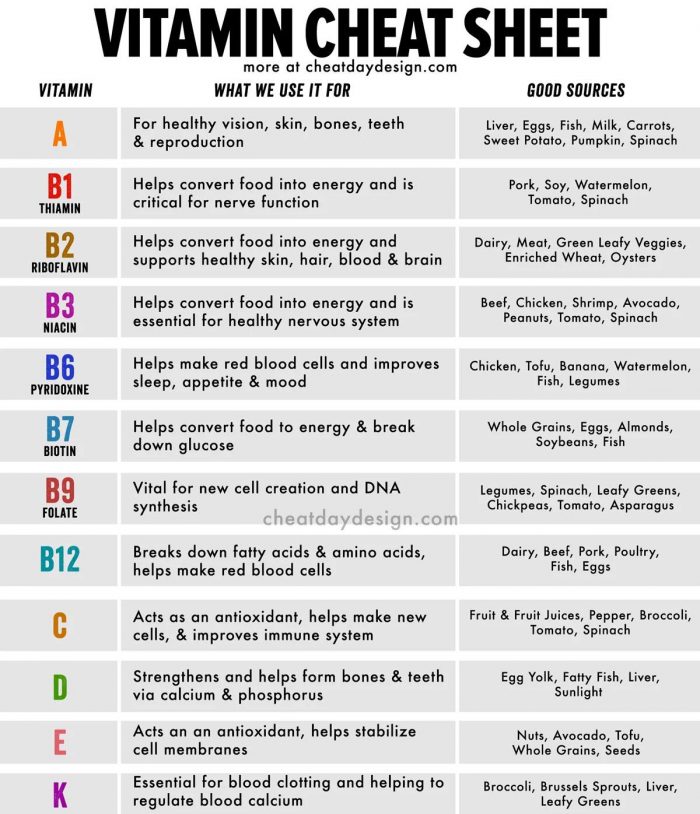
Vitamin supplements are a controversial topic. On the one hand, they contain only ingredients that are naturally found in foods, so it seems like an efficient way to get all the nutrients you need without having to eat more food. On the other hand, many studies have shown no benefits from taking vitamins and minerals as pills—and some even show that taking them may be harmful for your health. It’s hard to know what’s best for you, but here is a cheat sheet of vitamins we find useful and why:
Vitamin A
Vitamin A is important for eye health, skin health and a strong immune system. Carrots are a good source of vitamin A. They’re also high in beta-carotene, which your body can convert into vitamin A. Sweet potatoes contain moderate amounts of carotenoids (the pigments that give them their orange color) as well as other nutrients such as iron and magnesium. Kale and spinach are both excellent sources of lutein–an antioxidant that helps protect against macular degeneration–as well as zeaxanthin (another carotenoid).
Vitamin B6 (pyridoxine)
Vitamin B6 is a water-soluble vitamin. It is found in a wide range of foods, including meat, fish, poultry, eggs, whole grains and fortified cereals. Vitamin B6 helps maintain normal nervous system function, promote normal blood glucose levels and prevent deficiency during pregnancy.
Vitamin C (ascorbic acid)
Vitamin C is a water-soluble vitamin that’s good for the immune system, heart and eyes. It helps build collagen (the protein in skin) and reduces inflammation. In addition to its antioxidant properties, vitamin C also helps produce more white blood cells, which attack germs that cause infections such as colds and flus. Vitamin C can be found in citrus fruits like oranges or grapefruit; red bell peppers; kiwifruit; strawberries; broccoli; cauliflower; brussels sprouts
Vitamin D3 (cholecalciferol)
Vitamin D3 is the most important vitamin for bone health. It’s also good to know that you can find it in fish oil, eggs, and some dairy products. If you don’t get enough sun exposure (or if you live in a place where there isn’t much sunlight year-round), it might be worth taking an oral supplement of Vitamin D3 to ensure your body has enough.
Vitamin E (alpha-tocopherol)
Vitamin E is a fat-soluble vitamin. It’s a powerful antioxidant that protects cells from damage caused by free radicals, which are unstable molecules that can cause heart disease and cancer. Vitamin E also helps fight Alzheimer’s disease and may help prevent cataracts and age spots on the skin.
If you’re looking for an easy way to make sure that you’ve got all the vitamins and minerals your body needs, this cheat sheet is a great place to start. We’ve compiled all the information from each of our previous posts into one place so that it’s easy for you to reference when needed.
